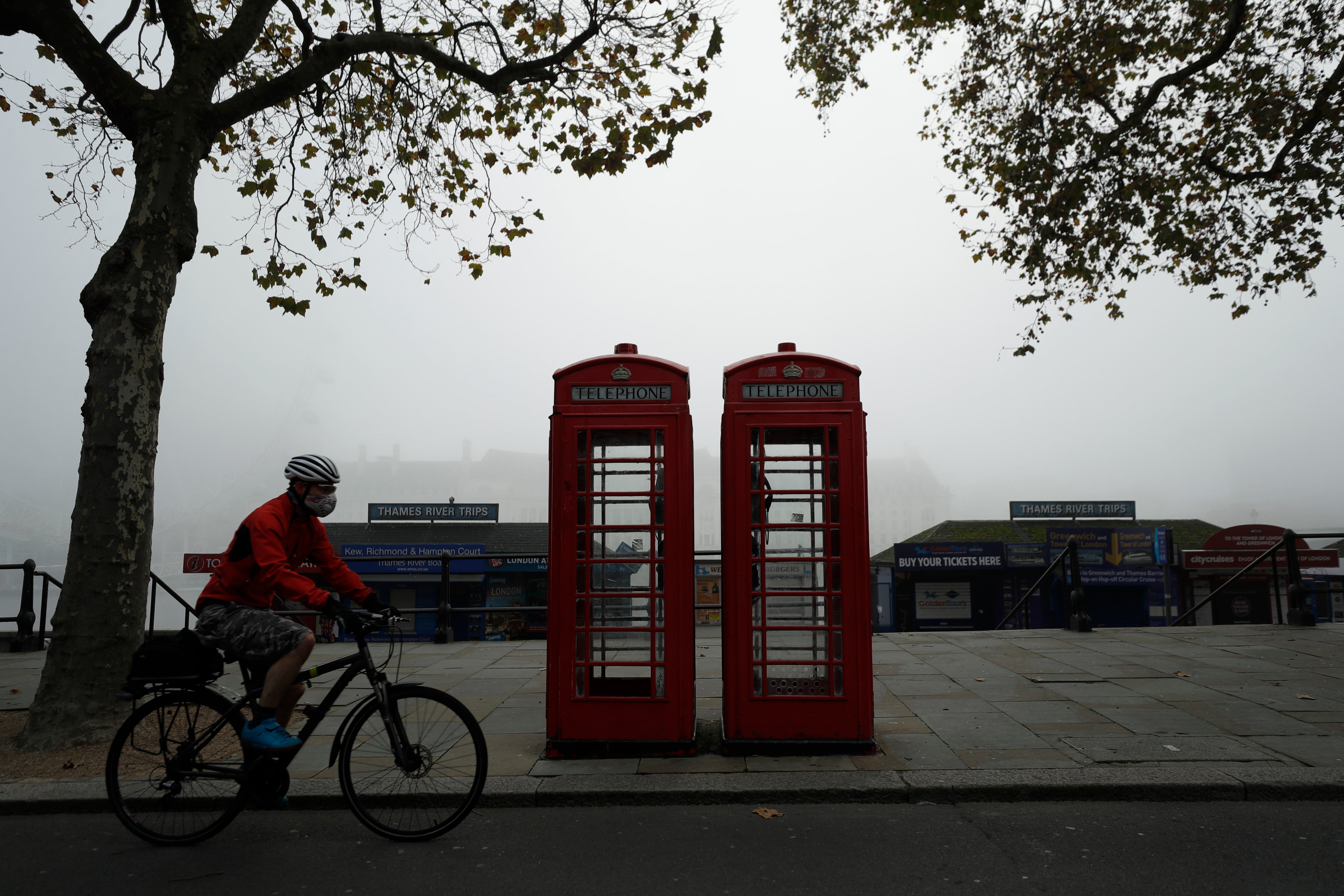Thousands of UK's phone boxes to be protected from closure
Britain's telecoms regulator says thousands of iconic red phone boxes will be protected from removal under new rules

Your support helps us to tell the story
From reproductive rights to climate change to Big Tech, The Independent is on the ground when the story is developing. Whether it's investigating the financials of Elon Musk's pro-Trump PAC or producing our latest documentary, 'The A Word', which shines a light on the American women fighting for reproductive rights, we know how important it is to parse out the facts from the messaging.
At such a critical moment in US history, we need reporters on the ground. Your donation allows us to keep sending journalists to speak to both sides of the story.
The Independent is trusted by Americans across the entire political spectrum. And unlike many other quality news outlets, we choose not to lock Americans out of our reporting and analysis with paywalls. We believe quality journalism should be available to everyone, paid for by those who can afford it.
Your support makes all the difference.Thousands of Britain’s iconic red phone boxes will be protected from removal under new rules, the telecoms regulator said Tuesday.
The public payphone boxes may appear obsolete relics to many in an age of ubiquitous smartphones, but the telecoms regulator, Ofcom, said they can still be a “lifeline” for people in need.
The regulator is proposing rules to prevent 5,000 call boxes in areas with poor mobile coverage from being closed down. It said that phone boxes in areas considered an accident or suicide hotspot, and those that have had more than 52 calls made from them in the past 12 months, would also meet the criteria.
Ofcom said there are still around 21,000 boxes across the country, and that almost 150,000 calls were made to emergency services from phone boxes in the year to May 2020. Some 45,000 calls were also made to other helplines like the Samaritans
“Some of the call boxes we plan to protect are used to make relatively low numbers of calls. But if one of those calls is from a distressed child, an accident victim or someone contemplating suicide, that public phone line can be a lifeline at a time of great need,” said Selina Chadha, Ofcom’s director of connectivity.
“We also want to make sure that people without mobile coverage, often in rural areas, can still make calls," she added.